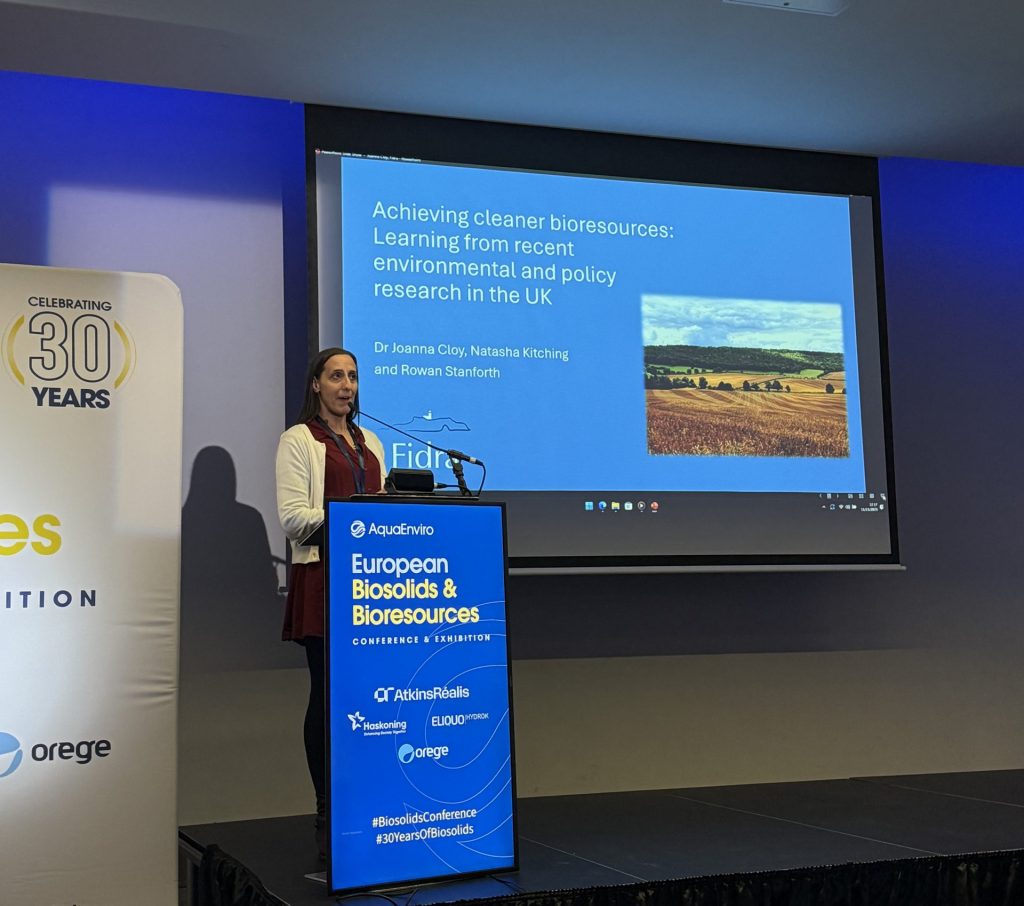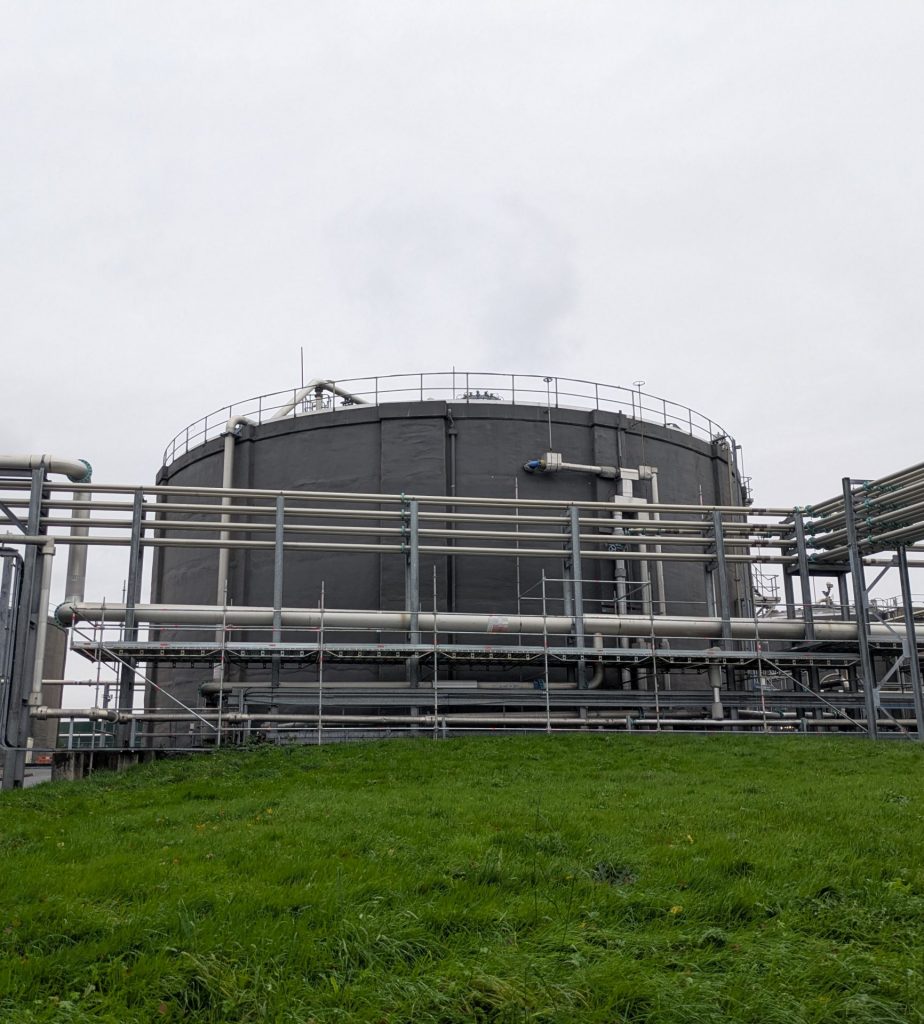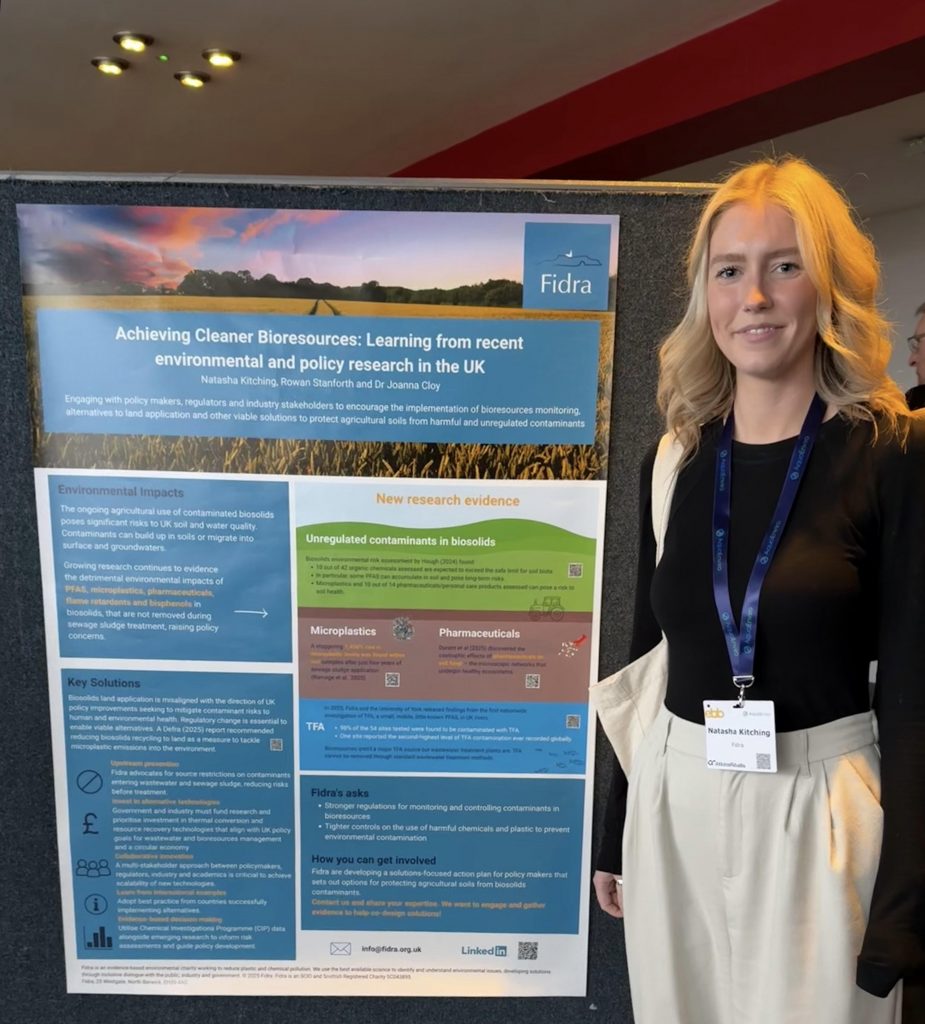
This month, our Sewage Free Soils team at Fidra attended the 30th European Biosolids and Bioresources Conference in Manchester, where we joined water industry professionals, consultants, and academics to discuss the future of biosolids management. It was an opportunity to celebrate new technologies for contaminant removal, discuss increased resilience, alternative outlets and routes for resource recovery, and to highlight the knowledge gaps and action needed to protect the UK’s agricultural soils from contaminated bioresources.
We delivered oral and poster presentations focusing on a critical issue: the increasing evidence of harm to the environment from unregulated contaminants present in treated sewage sludge (biosolids) applied to agricultural land. These contaminants include PFAS, microplastics, pharmaceuticals, bisphenols, and flame retardants. While biosolids are a valuable circular source of nutrients for crops, unwanted contaminants that cannot be removed during wastewater and sludge treatment pose real risks to soil and water quality, food safety, and long-term agricultural productivity. Recent research has shown that many unregulated contaminants found in biosolids can pose a risk to soil after just 1-2 applications [1].
At the moment, there is no requirement to monitor or remove these unregulated substances from biosolids under current agricultural use of sewage sludge regulations. Recently, The Independent Water Commission’s review of the water sector in England and Wales called for the ‘outdated’ regulations to be updated to reflect this risk evidence [2].
The conference was a valuable reminder of how far the biosolids sector has come over the past 30 years. Treatment processes have improved significantly, and there’s growing awareness of landbank challenges and the need to balance resource recovery with environmental protection. The conversations we had with attendees from across the sector were encouraging and constructive. New technologies for contaminant removal, increased resilience and alternative bioresources outlets and routes for resource recovery were repeatedly discussed. We even had an informative site visit to the Manchester Bioresource Centre (MBC), United Utilities’ bioresource production facility!


However, there’s more work to do. Research evidencing risks and impacts from banned (e.g. PFOA and PFOS) and poorly understood ’emerging’ chemicals found in bioresources continues to grow. Therefore we must continue to push alternatives to land application and a positive trajectory for the UK’s environment. By enforcing source control, advancing sludge treatment technologies, and strengthening monitoring, we can protect our environment from the risks posed by challenging and complex mixtures of contaminants.
Fidra seek open dialogue with all stakeholders around the ongoing challenges associated with the recycling of biosolids to land.
Further information is available in our presentation and event poster below!
Link to event poster
References
[1] Rupert Hough (2024) Using new contaminants information to re-assess environmental risks from sewage sludge Retrieved online May 14, 2025 from: https://www.fidra.org.uk/download/james-hutton-institute-re-assessment-of-environmental-risks-from-sewage-sludge/.
[2] Independent Water Commission (2025) Independent Water Commission: Final Report Retrieved online July 25, 2025 from: https://assets.publishing.service.gov.uk/media/687dfcc4312ee8a5f0806be6/Independent_Water_Commission_-_Final_Report_-_21_July.pdf.
